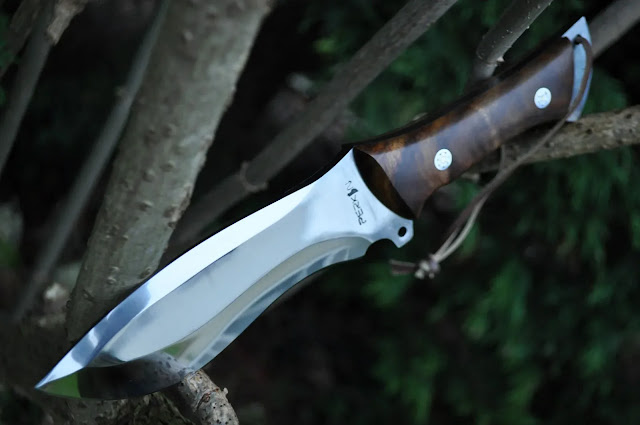Are You Interested In Knowing More About Kitchen Knives?
"You're only as good as the tools you work with, and in cooking- that's very true."
Every kitchen needs the right tools, and one of these is having a set of the right kitchen knives. It is an investment that you should make because it'll reward you with a safe, enjoyable performance while cooking.
Let us look into the three must-haves
Chef Knives
Don't forget the best kitchen knives UK are chef knives. They have the potential to be more than just tools: they could be your most important players!
The blade's rolling curvature pointed tip and broad and sturdy heel create a recognisable but entirely true design.
We prefer one made of stainless steel since it retains its edge well, is robust, and is simple to maintain.
They also don't rust easily too, which is icing on the cake especially since you are using it in the kitchen. The 8" chef's knife is perfect for home cooks, and you can complete all the tasks effortlessly.
Paring Knife
After the chef knife, one can purchase a pairing knife. You can use the knife for doing any hand cutting or peeling. Like you can use the knife for peeling apples or potatoes, or you can flute mushrooms and more.
As with any knife, make sure you're picking out a very good quality version that will last you years of chopping vegetables or fruit with ease!
Serrated Knife
Bread knives are a multipurpose cutting tool. They can slice through bread, sandwiches, cakes, and any other crusty food.
They're ideal for slicing tomatoes, eggplants, melons and pineapples without smashing them into smithereens.
However, we should note that serrated blades aren't meant to be honed on steel as it will result in the edge being further damaged!
Now let's look into some common knife blade materials:
Carbon steel
Carbon steel creates a very strong alloy when integrated with iron. Carbon steel is very sharp and easier to sharpen, but it tends to be more brittle on the downside. It also needs more upkeep because it is susceptible to rusting if not cared for properly.
Although this can be inconvenient, chefs are willing to go through these extra steps for carbon steel knives because of their heightened sharpness!
While carbon steel is harder than stainless steel, it oxidises readily, resulting in a dark patina that forms on its surface over time. This may enter into the food you're cutting and intensify any metallic taste. To reduce this possibility, refrain from using your carbon steel knives on frozen foods or meats with bones, shells or scales; use a stainless knife instead!
Damascus Knife
Damascus steel is a complex and labour-intensive crafting process by forging layers of different types of steel, all while heat and force are applied. If done correctly, these layers can be layered, again and again, creating beautiful patterns that add to Damascus steel's beauty and longevity.
You would be in awe if you see Damasus knife or bone handle knives, they look amazing!
Stainless steel
An alloy of metals, most commonly iron with 14% chromium, is tough enough to resist rusting yet hard enough to sharpen easily. Stainless steel will hold an edge longer than conventional steel but is often more costly for knives meant for everyday use.
When properly treated with food-grade oil regularly, it can be relatively maintenance-free.
Conclusion
We hope with our tips you'll find the right knife. The right knife for your needs and a knife that's going to last you many years.



.png)

Comments
Post a Comment